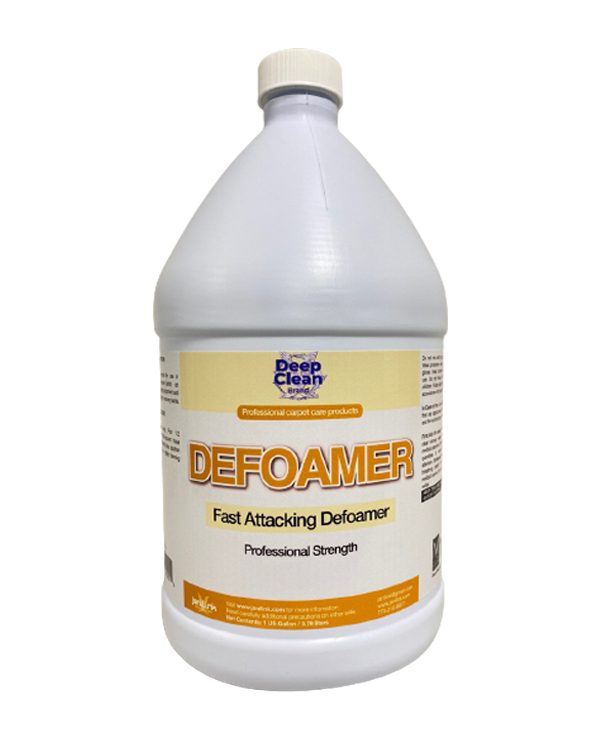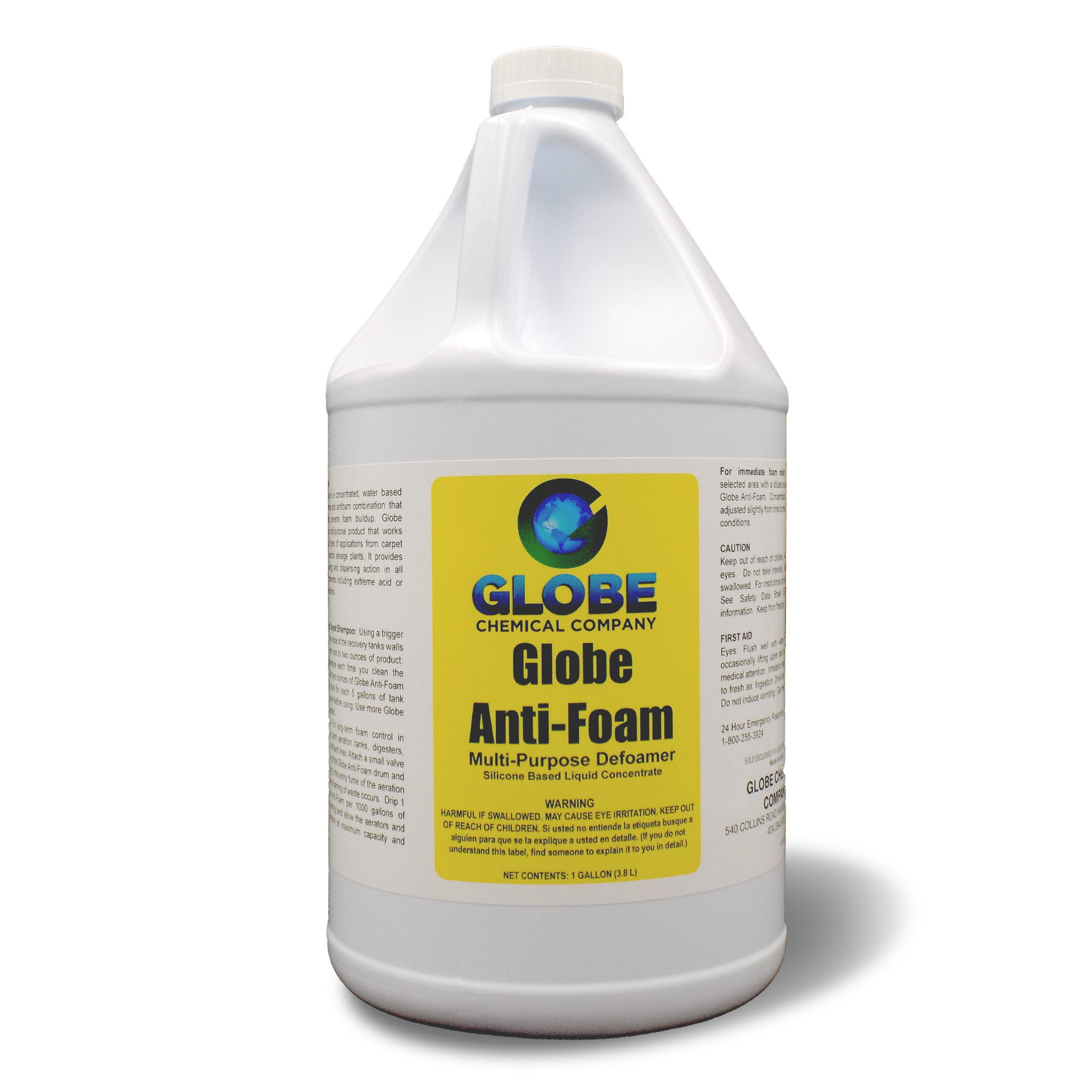Discover the Top Reasons You Need a Chemical Defoamer for Effective Foam Control
In numerous commercial applications, effective foam control is vital for keeping operational efficiency and product high quality. Chemical defoamers work as essential agents that reduce foam development, consequently boosting procedures in sectors such as food production, pharmaceuticals, and wastewater treatment. Their capability to decrease surface area stress not just assists in quicker foam collapse yet additionally brings about significant cost savings and improved resource management. As we explore the multifaceted advantages of chemical defoamers, it becomes evident that their role prolongs past plain foam reduction, affecting general performance in ways that may not be right away noticeable.
Boosted Operational Efficiency
How can the reliable use chemical defoamers considerably enhance functional effectiveness in various commercial procedures? The presence of foam can prevent manufacturing by obstructing tools, decreasing capacity, and complicating process control. Chemical defoamers work as a vital option in reducing these difficulties. By decreasing surface tension, they facilitate the quick collapse of foam, permitting smoother operation and reducing downtime (Chemical Defoamer).
In markets such as food and beverage, pharmaceuticals, and wastewater therapy, the application of defoamers improves procedure stability and product top quality. In fermentation procedures, managing foam generation is important for maximizing return and effectiveness. Furthermore, using defoamers can bring about much more reliable mixing and oygenation, leading to boosted reaction times and general productivity.
Furthermore, when foam is properly regulated, it lowers the danger of overflow and contamination, guaranteeing compliance with safety and top quality requirements. This not only simplifies operations yet additionally enables far better source utilization. Eventually, the combination of chemical defoamers right into commercial processes fosters a much more reliable workflow, maximizing outcome while keeping top quality criteria. Thus, their duty in boosting functional performance can not be overemphasized.
Expense Cost Savings and Source Administration

In several applications, too much foam can trigger overuse of chemicals, leading to unneeded expenses. By regulating foam levels, companies can optimize their chemical input, thereby reducing functional prices.
Furthermore, minimized foam in handling systems can improve the general throughput, enabling facilities to enhance production capacity without incurring added expenses - Chemical Defoamer. This efficient resource monitoring equates into substantial economic advantages, allowing services to designate funds towards technology or growth. In recap, the integration of chemical defoamers into commercial procedures cultivates a more resource-efficient and affordable setting, inevitably sustaining business growth and sustainability
Improved Product High Quality

Using chemical defoamers plays an important duty in boosting product quality throughout numerous industries. Extreme foam can lead to inconsistent product formulas, influencing the last qualities of goods such as paints, layers, food items, and pharmaceuticals. By reducing foam development, chemical defoamers help with smoother manufacturing procedures, guaranteeing that formulations stay consistent and meet given quality requirements.
In the food and beverage market, for example, the existence of foam can impact the clearness and preference of items, inevitably affecting consumer fulfillment. Chemical defoamers aid maintain the preferred texture and appearance, thereby boosting the overall top quality of the end product. Likewise, in the production of layers and paints, foam can result in problems such as pinholes and inadequate bond, threatening the product's efficiency.
In addition, using defoamers can enhance the performance of procedures like fermentation and emulsification, which are important for attaining preferred product attributes. By improving manufacturing and guaranteeing consistent quality, chemical defoamers not only improve the end product yet also add to a positive brand name reputation. Thus, purchasing efficient foam control solutions is crucial for any kind of business intending to provide high-quality items constantly.
Equipment Security and Durability
Decreasing foam production is crucial for safeguarding tools and guaranteeing its long life go to my blog in different industrial applications. Too much foam can lead to a variety of operational concerns, consisting of devices damages, raised maintenance expenses, and unintended downtime. When foam collects, it can create overflow, leading to spills that jeopardize the integrity of equipment and bordering areas.
In addition, foam can obstruct sensing units and pumps, which can prevent performance and effectiveness. In hop over to here severe instances, it can lead to the malfunction of parts, necessitating costly repair services or substitutes. By utilizing a chemical defoamer, business can successfully minimize foam development, hence guarding their devices from the harmful effects of foam-related problems.
Along with protecting against damages, reliable foam control can significantly enhance the functional lifespan of equipment. With minimized damage, tools can maintain peak performance degrees for a prolonged duration, equating to reduced total operational prices. Executing a defoamer not just ensures functional efficiency but likewise adds to a much more lasting service design by extending the lifecycle of useful possessions. As a result, buying a top quality chemical defoamer is an aggressive approach for securing tools and cultivating longevity in industrial setups.
Versatility Throughout Industries
Chemical defoamers play an essential duty in various markets, successfully dealing with foam-related challenges across varied applications. Their versatility appears in markets such as food and beverage, drugs, and wastewater treatment, where foam can minimize and restrain procedures effectiveness. In the food industry, defoamers make sure smooth manufacturing by stopping foam development during blending, fermentation, and bottling, consequently preserving item high quality and uniformity.

Moreover, in wastewater therapy centers, chemical defoamers are utilized to control foam during the aeration procedure, advertising optimal microbial task and boosting the total therapy performance. Their capacity to work properly in high-shear and high-temperature settings even more emphasizes their versatility.
Verdict
Finally, the use of chemical defoamers is important for effective foam control throughout various sectors. Their ability to improve functional efficiency, generate considerable expense savings, boost item quality, and secure tools highlights their critical function in industrial processes. Furthermore, the adaptability of defoamers permits extensive application in food production, drugs, and wastewater therapy, inevitably adding to sustainable growth and the maintenance of high functional standards. The combination of defoamers is necessary for maximizing overall performance.
Chemical defoamers offer as vital representatives that reduce foam development, consequently enhancing procedures in industries such as food production, pharmaceuticals, and wastewater treatment. As we explore the multifaceted benefits of chemical defoamers, it becomes evident that their function prolongs past mere foam reduction, affecting overall productivity in means that might not be instantly apparent.
By alleviating foam development, chemical defoamers help with smoother manufacturing procedures, making certain that formulas remain consistent and meet specified high quality criteria.
By utilizing Clicking Here a chemical defoamer, companies can properly reduce foam formation, hence securing their devices from the detrimental results of foam-related concerns.
In conclusion, the utilization of chemical defoamers is crucial for effective foam control throughout different industries.